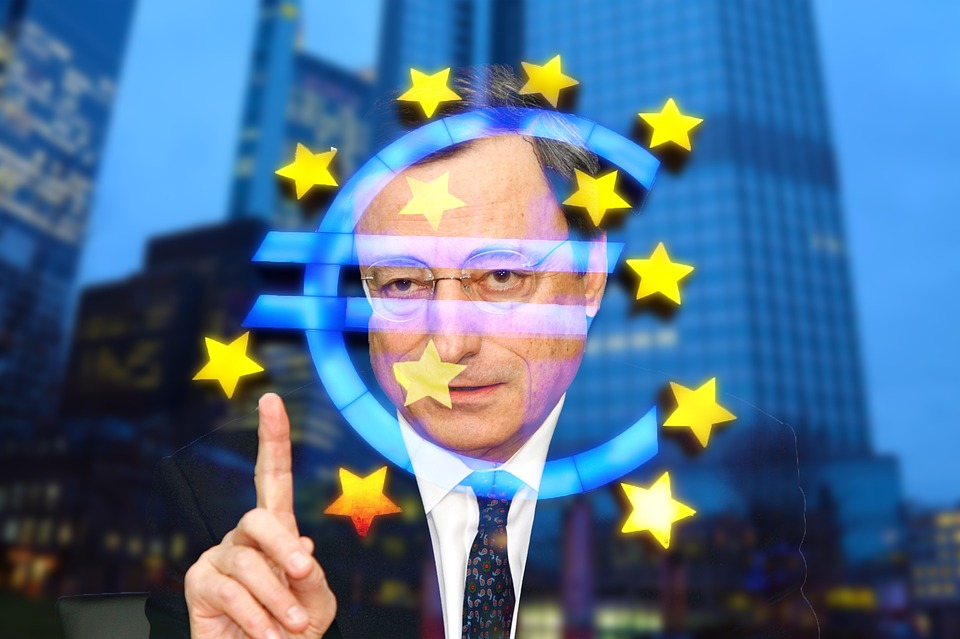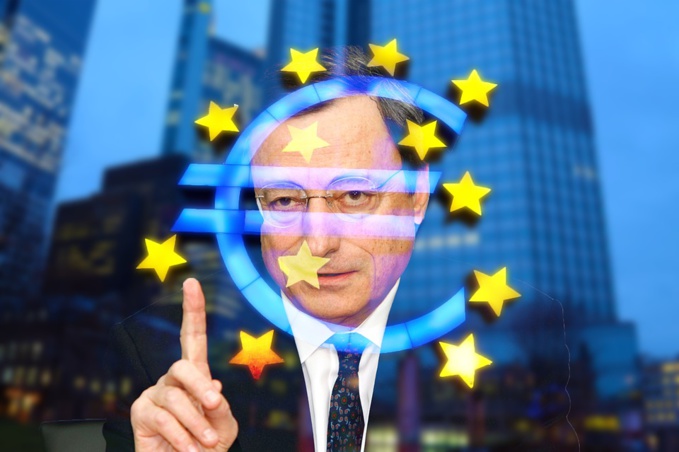Despite fears of Italian banks and protracted financial crisis in Greece, the euro area economy has been showing growth for fourteen consecutive quarters. The region even offset "Trump’s bullish effect", beating the United States in terms of growth - 1.7% versus 1.6%, respectively.
"I am still amazed with distorted negativism towards Europe" – said Erik Nielsen, chief economist at UniCredit, quoted by The Financial Times.
Creation of new jobs in the eurozone reached nearly nine-year high in January, while rate of production increase climbed up to record levels for the past five consecutive years. Markit Eurozone PMI Composite Output Index, which measures industry managers’ confidence, has been staying in the positive zone for already 43rd consecutive month.
Experts point out that impact of the financial crisis now has dropped to its lowest level in 10 years, and a referendum in the UK has not yet brought significant negative consequences, which many feared seriously. The unemployment rate is shrinking, and the economy confidence index reached its highest level in six years - 108.2.
Such an upturn has partly been triggered by ultra-mild monetary policy of the European Central Bank, which encourages European citizens and companies to borrow and spend. "The inflation indicator is still lagging behind the planned since we are trying to achieve 2% over the medium term now ", - said Peter Praet, chief economist of the ECB. This view may well result in preservation of the soft policy to increase inflation and reduce unemployment, unlike the US Federal Reserve, which plans to be gradually raising its key interest rate during the entire year.
The ECB’s President Mario Draghi confirmed the assumption. According to him, there are no preconditions for increasing the base rate and cancellation of the QE programme.
Not so long ago, Peter Navarro, heads President Trump’s National Council on Trade, accused Germany that the country "continues to exploit other EU countries". However, pace of growth has increased in all euro area countries in 2016, except for Italy.
Focus Economics, which compares economic forecasts, noted that the biggest increase in 2017 will most likely be observed in the euro area.
So far, most commentators still agree that the United States may overtake the euro zone in 2017 (IMF forecasts 1.6% for the Eurozone and 2.3% for the US). According to Nielsen, in the last ten years, growth of GDP per capita in the euro area was 1.9% on average per year. "This figure is 2.4% in the US. It's a small difference,"- said the expert.
According to Nielsen, the growth in more noticeable in those European countries, where level of inequality is not growing as fast as in the United States. The economist predicts that pace of development of the EU economy in 2018 is likely to be on a par with the United States, since majority of Trump initiatives will not have gained the full force by that time.
However, there is still some reasons to doubt reliability of the European economy, precisely, fragmentation of the financial markets and unsolved problems in some peripheral countries, such as Italy and Portugal. In addition, the Greek debt problem is still lingering.
February 7th, Board of Directors of the International Monetary Fund (IMF) said that the Greek authorities will have to make additional efforts to reduce public debt "in spite of tremendous sacrifices from Greece’s part and generous assistance of the European partners".
Thus, the euro zone's growth does not appear that sustainable in the long term.
So, Dhaval Joshi of BCA Research called this progress an "amazing improvement" and assured that "the mini-recovery in the economy is likely to come to an end soon."
source: ft.com
"I am still amazed with distorted negativism towards Europe" – said Erik Nielsen, chief economist at UniCredit, quoted by The Financial Times.
Creation of new jobs in the eurozone reached nearly nine-year high in January, while rate of production increase climbed up to record levels for the past five consecutive years. Markit Eurozone PMI Composite Output Index, which measures industry managers’ confidence, has been staying in the positive zone for already 43rd consecutive month.
Experts point out that impact of the financial crisis now has dropped to its lowest level in 10 years, and a referendum in the UK has not yet brought significant negative consequences, which many feared seriously. The unemployment rate is shrinking, and the economy confidence index reached its highest level in six years - 108.2.
Such an upturn has partly been triggered by ultra-mild monetary policy of the European Central Bank, which encourages European citizens and companies to borrow and spend. "The inflation indicator is still lagging behind the planned since we are trying to achieve 2% over the medium term now ", - said Peter Praet, chief economist of the ECB. This view may well result in preservation of the soft policy to increase inflation and reduce unemployment, unlike the US Federal Reserve, which plans to be gradually raising its key interest rate during the entire year.
The ECB’s President Mario Draghi confirmed the assumption. According to him, there are no preconditions for increasing the base rate and cancellation of the QE programme.
Not so long ago, Peter Navarro, heads President Trump’s National Council on Trade, accused Germany that the country "continues to exploit other EU countries". However, pace of growth has increased in all euro area countries in 2016, except for Italy.
Focus Economics, which compares economic forecasts, noted that the biggest increase in 2017 will most likely be observed in the euro area.
So far, most commentators still agree that the United States may overtake the euro zone in 2017 (IMF forecasts 1.6% for the Eurozone and 2.3% for the US). According to Nielsen, in the last ten years, growth of GDP per capita in the euro area was 1.9% on average per year. "This figure is 2.4% in the US. It's a small difference,"- said the expert.
According to Nielsen, the growth in more noticeable in those European countries, where level of inequality is not growing as fast as in the United States. The economist predicts that pace of development of the EU economy in 2018 is likely to be on a par with the United States, since majority of Trump initiatives will not have gained the full force by that time.
However, there is still some reasons to doubt reliability of the European economy, precisely, fragmentation of the financial markets and unsolved problems in some peripheral countries, such as Italy and Portugal. In addition, the Greek debt problem is still lingering.
February 7th, Board of Directors of the International Monetary Fund (IMF) said that the Greek authorities will have to make additional efforts to reduce public debt "in spite of tremendous sacrifices from Greece’s part and generous assistance of the European partners".
Thus, the euro zone's growth does not appear that sustainable in the long term.
So, Dhaval Joshi of BCA Research called this progress an "amazing improvement" and assured that "the mini-recovery in the economy is likely to come to an end soon."
source: ft.com



















